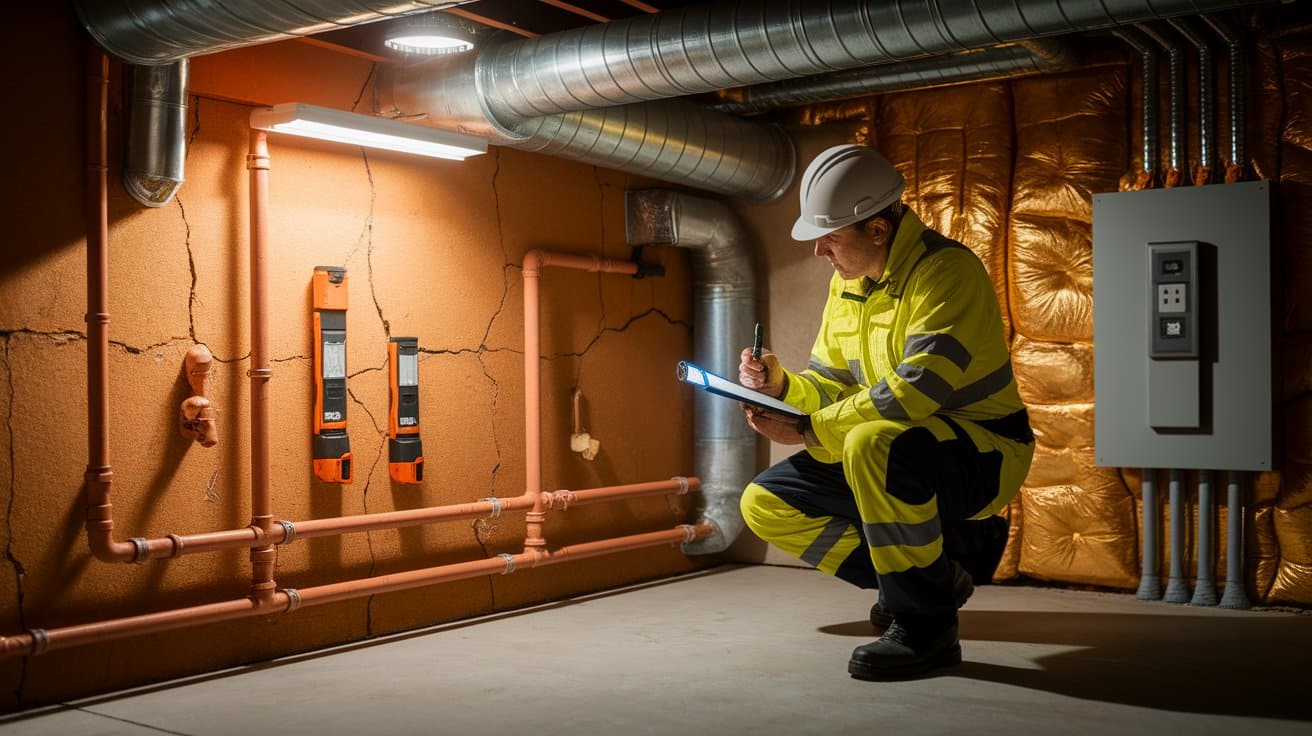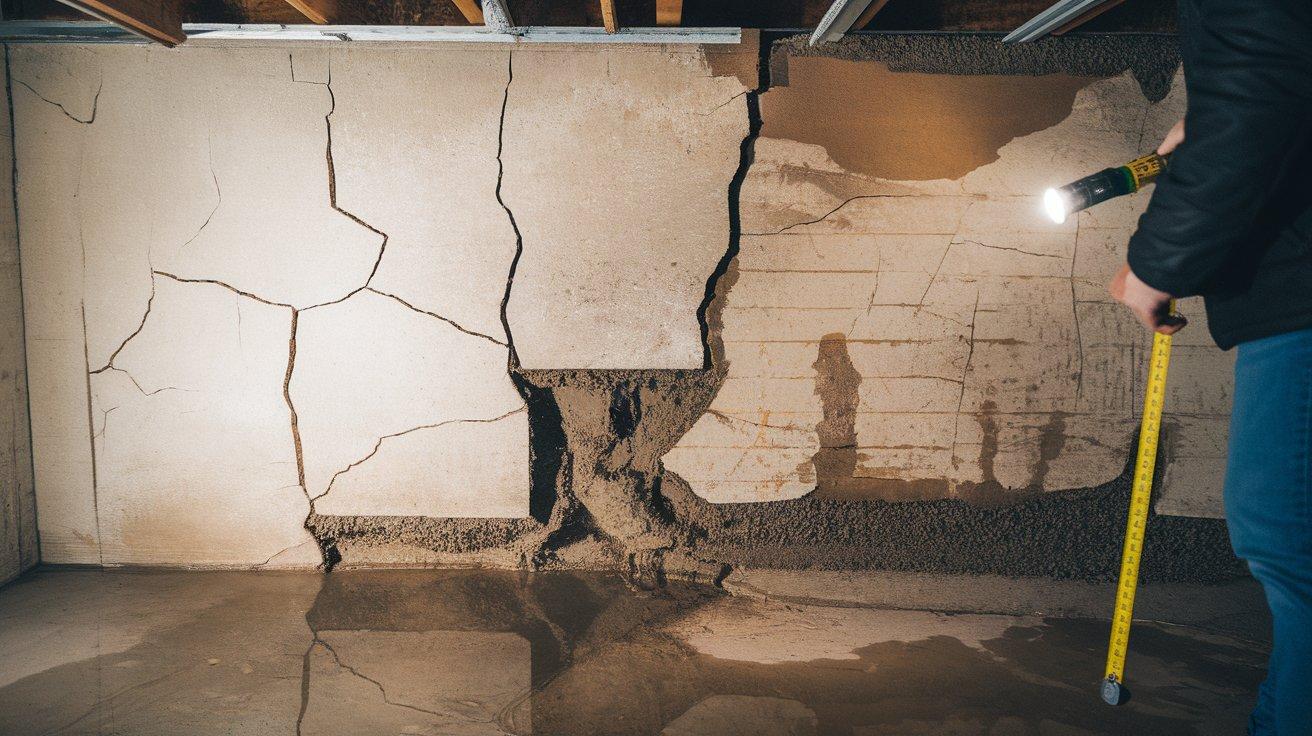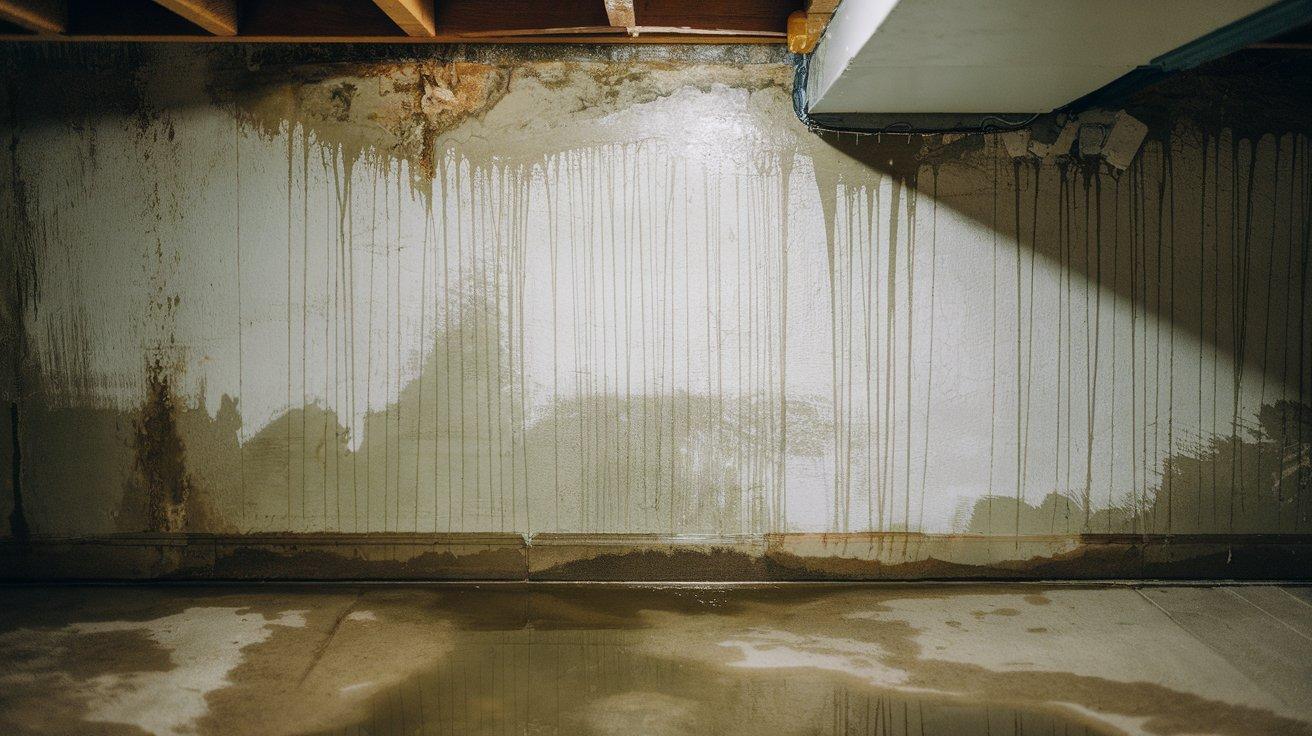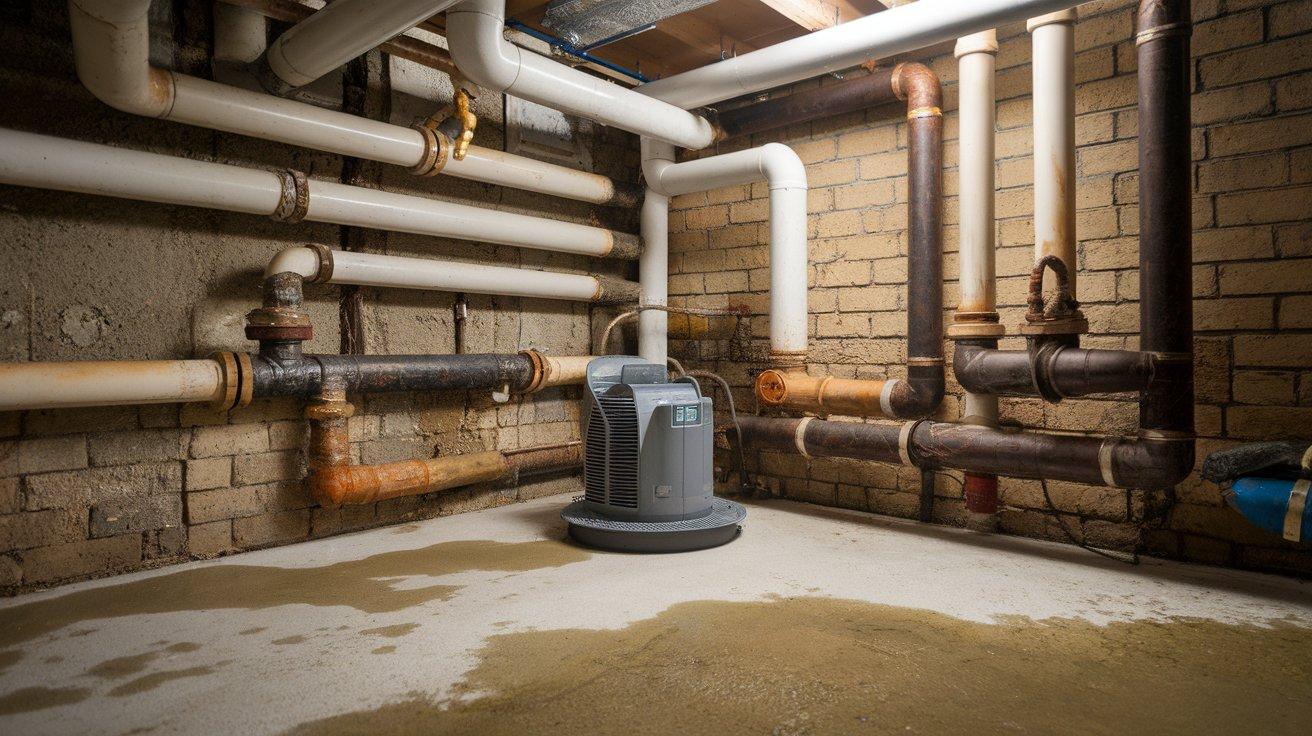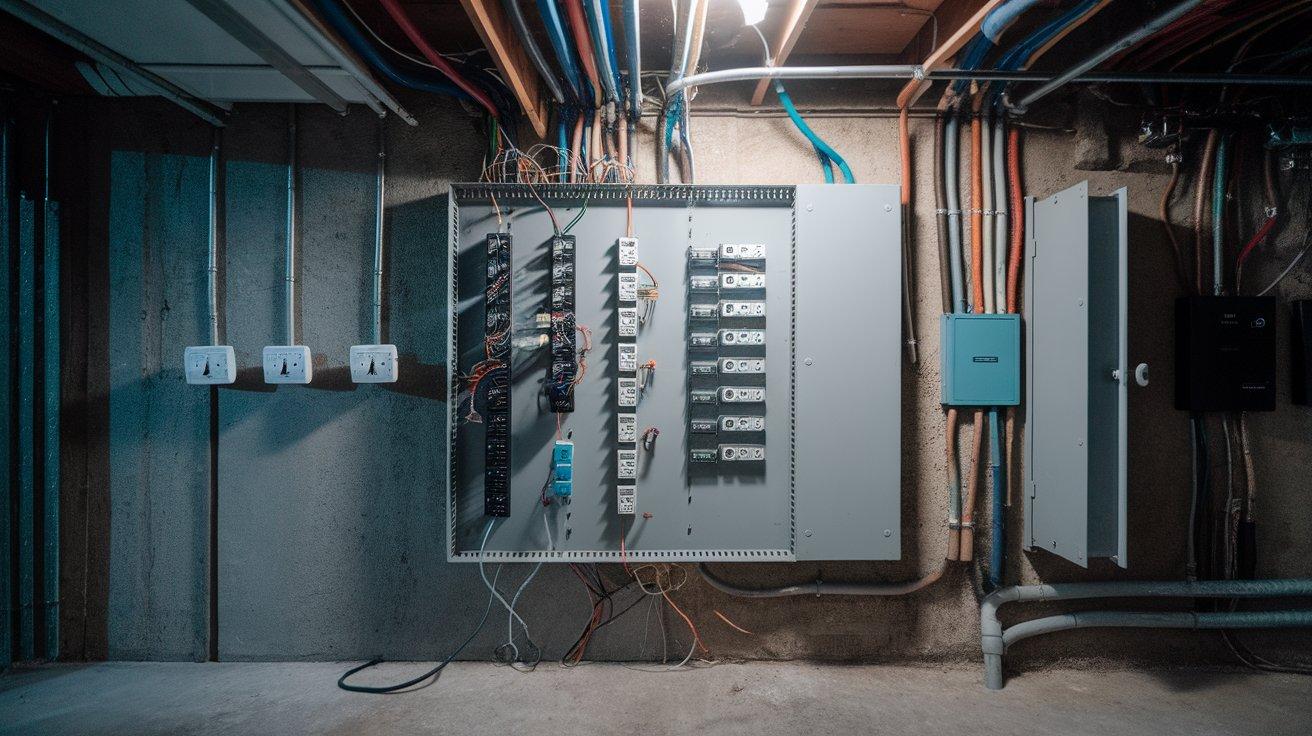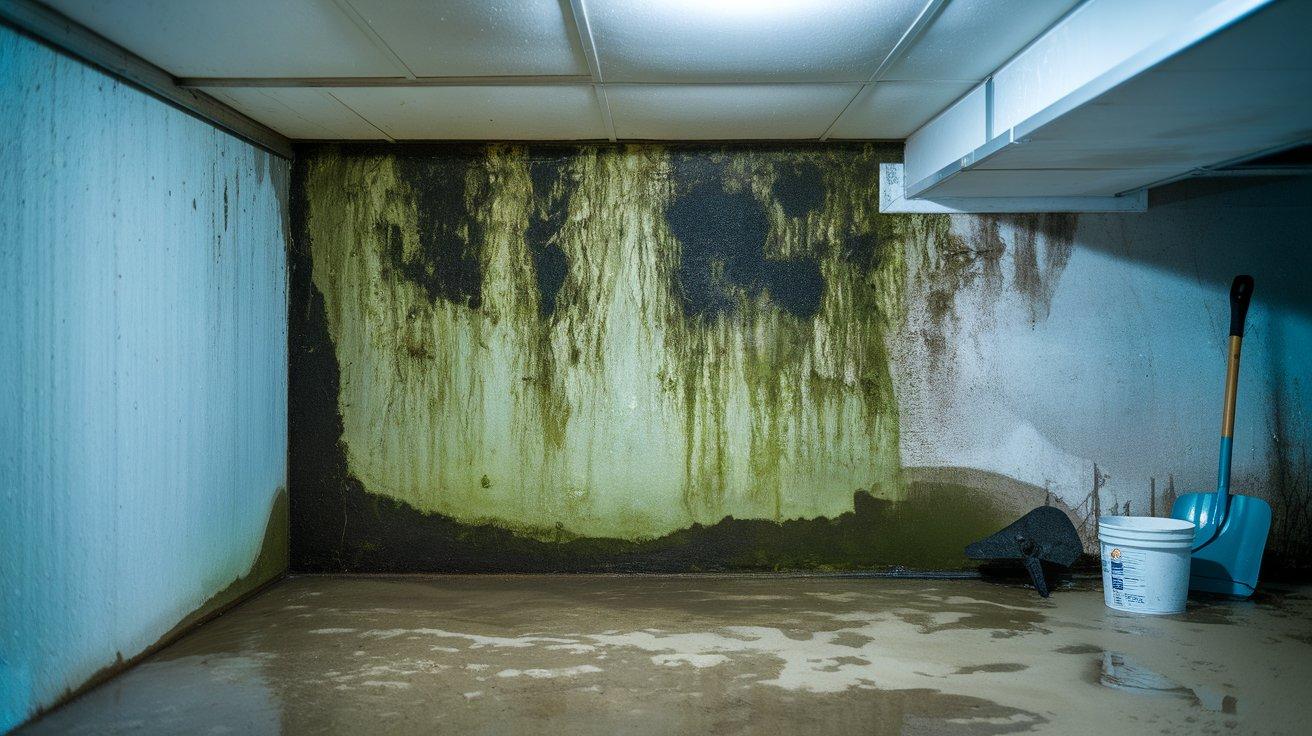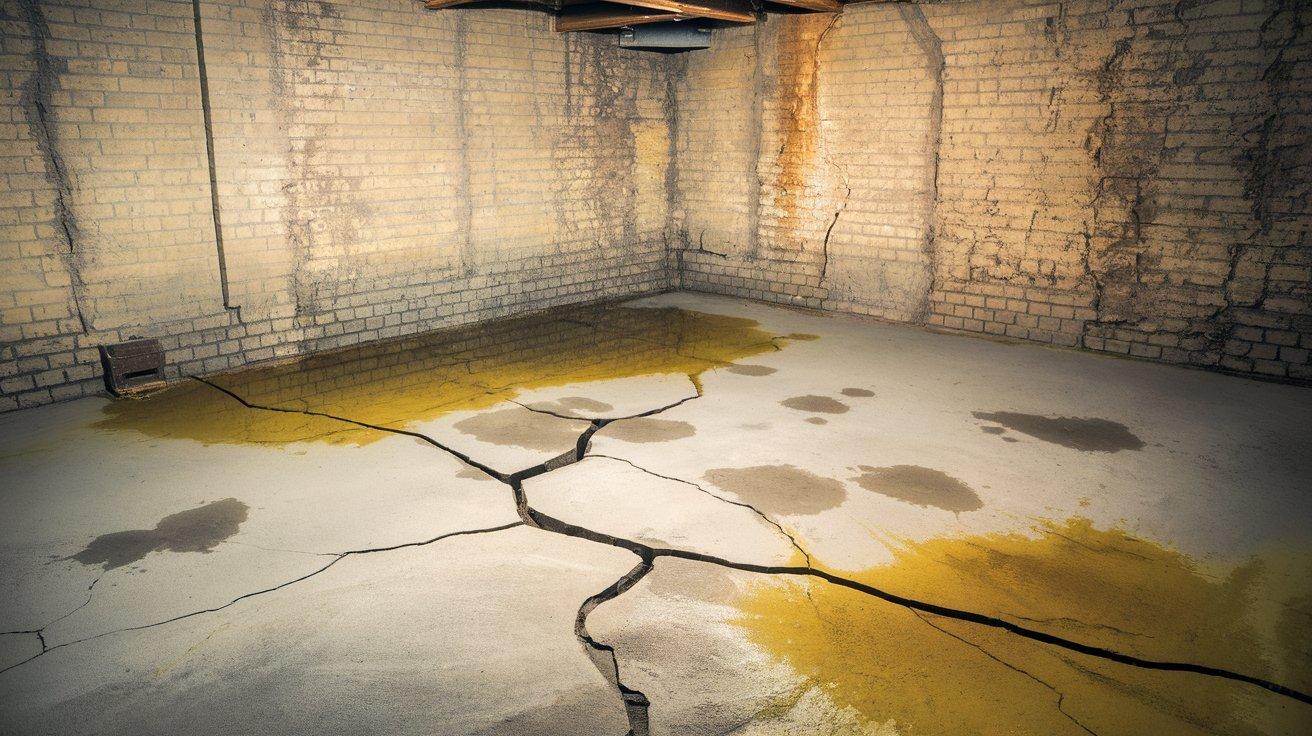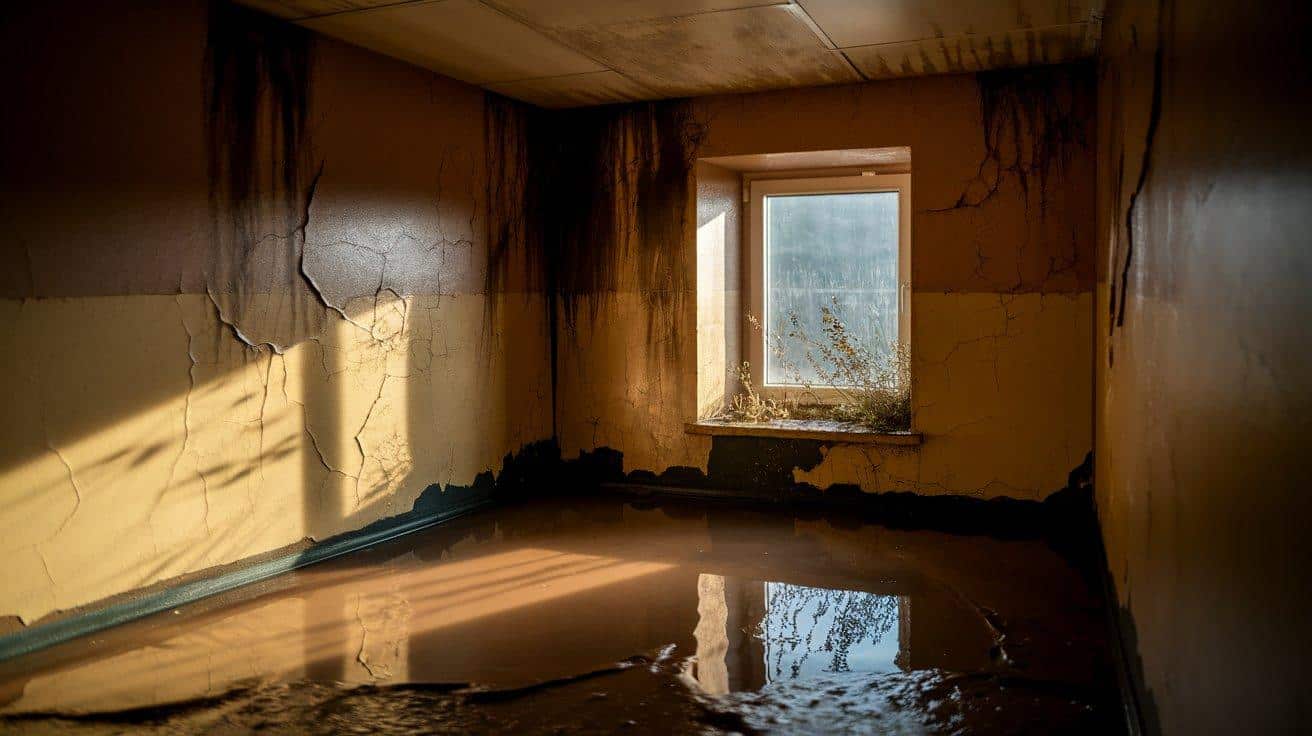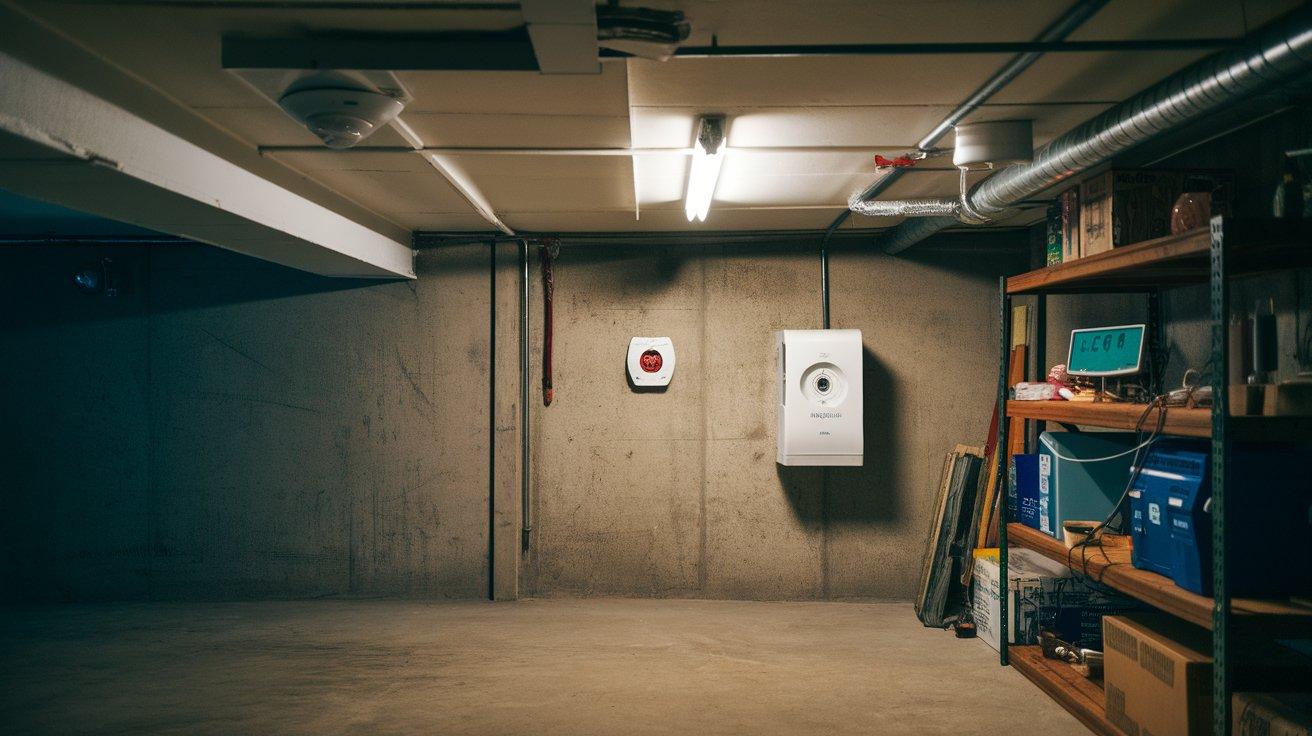Have you ever wondered what lurks beneath your home’s foundation? Many homeowners overlook their basement until problems become costly nightmares that drain their savings.
A basement inspection can save thousands in repair costs while protecting your family’s health.
Hidden issues like water damage, mold, or structural problems often go unnoticed for years until they become major disasters.
I’ve seen too many families face expensive surprises because they skipped regular basement checks.
Smart homeowners know that prevention beats costly repairs every time, especially when dealing with foundation issues.
This blog covers everything you need to know about basement inspection. From costs to procedures, you’ll learn how to protect your home’s foundation and your family’s health through proper maintenance.
What Is a Basement Inspection?
A basement inspection is a thorough examination of your home’s lowest level. Professional inspectors check for structural damage, water issues, and safety concerns.
This process helps identify problems before they become expensive disasters.
During this inspection, experts look at walls, floors, and ceiling areas. They test electrical systems, plumbing, and ventilation in the basement space. Every corner gets checked for signs of damage or potential issues.
The inspection includes both visual checks and specialized testing when needed. Inspectors use tools like moisture meters, thermal cameras, and air quality devices.
This complete approach ensures no problem goes unnoticed during the examination process.
What Is the Necessity of Basement Inspection?
Routine inspections help maintain your home’s stability and safeguard your family’s well-being. These examinations catch minor problems before they grow into major expenses.
- Early Problem Detection: Spotting issues like cracks or leaks before they worsen saves money and prevents extensive damage.
- Health Protection: Finding mold, poor air quality, or moisture problems protects your family from respiratory issues and allergies.
- Property Value Maintenance: Regular inspections help maintain your home’s market value and prevent costly structural repairs.
- Insurance Requirements: Many insurance companies require proof of regular maintenance to cover basement-related claims and damages.
- Safety Compliance: Ensuring electrical systems, exits, and structural elements meet current safety codes protects your family.
- Peace of Mind: Knowing your basement is safe and sound provides confidence in your home’s overall condition.
Who Conducts Basement Inspections?
Licensed home inspectors handle most residential basement examinations. These professionals focus on identifying structural issues, safety concerns, and environmental hazards in below-ground areas.
Homeowners may also consult specialized contractors for targeted problems. Foundation experts evaluate structural damage, while environmental specialists test for air quality issues.
Each type of professional offers specific expertise for different basement concerns.
How to Choose the Right Basement Inspector
Choosing a qualified basement inspector involves assessing their qualifications and professional background. The quality of your inspection depends heavily on choosing a qualified professional.
Key Factors for Inspector Selection
- Proper Licensing: Verify the inspector holds current state licenses and meets local regulatory requirements for basement inspections
- Relevant Training: Look for professionals with construction backgrounds, engineering education, or specialized property inspection coursework
- Industry Certifications: Seek inspectors certified by ASHI, InterNACHI, or similar professional organizations with continuing education requirements
- Field Experience: Choose inspectors with several years of basement inspection experience and hundreds of completed examinations
- Insurance Protection: Ensure the inspector carries both professional liability and general liability coverage for your protection
- Quality Reporting: Request sample reports to evaluate their thoroughness, clarity, and documentation standards before hiring
- Client References: Check online reviews and contact previous customers to verify satisfaction with their inspection services
Taking time to research inspector qualifications protects your investment. A thorough vetting process ensures you receive accurate, professional basement evaluation services.
What Gets Inspected During a Basement Inspection?
A thorough basement inspection involves evaluating various systems and components to ensure the property’s integrity. They follow detailed checklists to ensure nothing gets missed during the examination process.
1. Foundation and Structural Integrity
Foundation walls are assessed for signs of structural movement, such as cracks or bowing. They check support beams, posts, and joists for damage or deterioration.
Any signs of structural movement are documented and evaluated for potential safety concerns. Inspectors look for sagging floors, cracked walls, or shifting foundations.
They also check for proper foundation drainage and grading issues.
2. Moisture and Water Intrusion
Water damage assessment focuses on finding active leaks and moisture sources. Inspectors check walls, floors, and ceilings for water stains or dampness.
They examine sump pumps, drainage systems, and waterproofing materials using specialized moisture detection equipment.
3. Plumbing Systems
All visible plumbing gets inspected for leaks, corrosion, or code violations. Inspectors check water supply lines, drain pipes, and fixtures for proper installation.
They test water pressure and look for signs of pipe deterioration or sewage backup issues.
4. Electrical Systems
Electrical inspections cover wiring, outlets, and panel boxes in basement areas. Inspectors check for proper grounding, GFCI protection, and code compliance throughout the space.
They look for exposed wires, overloaded circuits, or potential fire hazards that need immediate attention.
5. Insulation and Ventilation
Insulation levels and placement are evaluated for energy efficiency and moisture control.
Inspectors check for proper vapor barriers and air sealing techniques in basement walls. Ventilation systems receive examination for proper air circulation and humidity control to prevent mold growth.
6. Mold and Mildew Presence
Visual mold inspection covers all surfaces, including hidden areas behind storage items.
Inspectors look for visible growth, musty odors, or conditions that promote mold development. They check humidity levels and may recommend air quality testing if concerns exist.
7. Pest Infestation
Pest inspections look for signs of rodents, insects, or other unwanted creatures. Inspectors check for droppings, nests, or damage caused by common basement pests.
They examine entry points and conditions that attract infestations, such as moisture or food sources.
8. Basement Flooring Condition
Flooring inspection covers concrete slabs, tiles, carpeting, and other materials for damage. Inspectors check for cracks, settling, or moisture damage in floor surfaces.
They examine floor drains, expansion joints, and surface treatments for proper maintenance and functionality.
9. Windows and Window Wells
Window inspection includes frames, glass, and hardware for proper operation and sealing. Inspectors check for air leaks, water infiltration, or security issues in basement windows.
They examine window wells for proper drainage and verify egress requirements for safety compliance.
10. Safety Features and Air Quality
Safety inspections cover smoke detectors, carbon monoxide alarms, and emergency exits. Inspectors check for the proper placement and operation of safety devices throughout the basement.
Air quality assessment may include radon testing or general ventilation evaluation for health concerns.
How Long Does a Basement Inspection Take?
A typical basement inspection takes 1-3 hours, depending on the size and complexity. Simple basements with minimal systems can be completed in about an hour.
Larger finished basements with multiple rooms and systems require more time.
Inspectors spend extra time when problems are found or specialized testing is needed. Complex issues like structural damage or extensive water problems require detailed documentation.
The inspector’s experience level and thoroughness also affect timing.
Most inspections include time for questions and explanations after the examination. Inspectors typically provide preliminary findings before leaving your property. Written reports usually follow within 24-48 hours of the inspection.
How Much Does a Basement Inspection Cost?
Basement inspection costs vary based on several factors, including location, basement size, and services included.
Professional inspections typically range from $300 to $800, depending on complexity and scope. Specialized testing, like radon or extensive moisture analysis, increases the total cost.
| Inspection Type | Average Cost Range | What’s Included |
|---|---|---|
| Basic Visual Inspection | $300 – $450 | General condition assessment, basic systems check |
| Comprehensive Inspection | $450 – $650 | Detailed examination, moisture testing, and safety review |
| Specialized Testing | $150 – $300 per test | Radon testing, mold testing, and air quality assessment |
| Pre-Purchase Inspection | $500 – $800 | Complete evaluation for home-buying decisions |
| Bundled Home Inspection | $400 – $600 | Basement included with whole house inspection |
Several factors affect final pricing, including property size, accessibility, and regional market rates.
Additional services like structural engineering consultation or environmental testing increase costs. Getting quotes from multiple licensed inspectors helps ensure competitive pricing for your specific needs.
Risks of Avoiding Basement Inspection
Skipping basement inspections can lead to expensive problems that threaten your home’s safety and value. Many issues start small but grow into major disasters without proper attention.
- Structural Damage: Foundation problems can compromise your entire home’s stability and require expensive repairs, costing tens of thousands.
- Mold and Health Issues: Hidden mold growth can cause serious respiratory problems and require costly remediation, plus medical treatment.
- Water Damage: Undetected leaks can damage flooring, walls, and stored items while promoting mold growth throughout your home.
- Electrical Fire Hazards: Faulty wiring or overloaded circuits can cause fires that destroy property and endanger lives.
- Pest Infestations: Unchecked pest problems can cause structural damage and create unsanitary conditions requiring expensive treatment.
Conclusion
Smart homeowners understand that a basement inspection protects their biggest investment from costly surprises. Regular examinations catch problems early when repairs cost less.
Your basement’s condition directly affects your entire home’s safety, structural integrity, and overall livability. Professional inspections provide peace of mind while protecting your family’s health.
Don’t wait for small problems to become expensive disasters that drain your savings account. Schedule a comprehensive basement inspection today and take control.
The information covered in this guide helps you make informed decisions about basement maintenance. From understanding costs to knowing inspection procedures, you’re prepared.
What questions do you have about basement inspection procedures or costs? Share your thoughts or any questions in the comments below.
Frequently Asked Questions
How Do I Know if My Basement Is Safe?
Check for moisture problems, inspect for pest signs, ensure proper ventilation, evaluate insulation quality, test air quality and radon levels, and maintain organized storage areas.
What Damages the Foundation of A Basement?
Water damage through cracks, porous concrete, or poor drainage causes foundation erosion, weakening, settling, and bowing walls over time.
Is the Basement Foundation Covered by Insurance?
Homeowners insurance covers foundation damage from covered perils but excludes damage from normal wear, tear, or poor maintenance practices.

